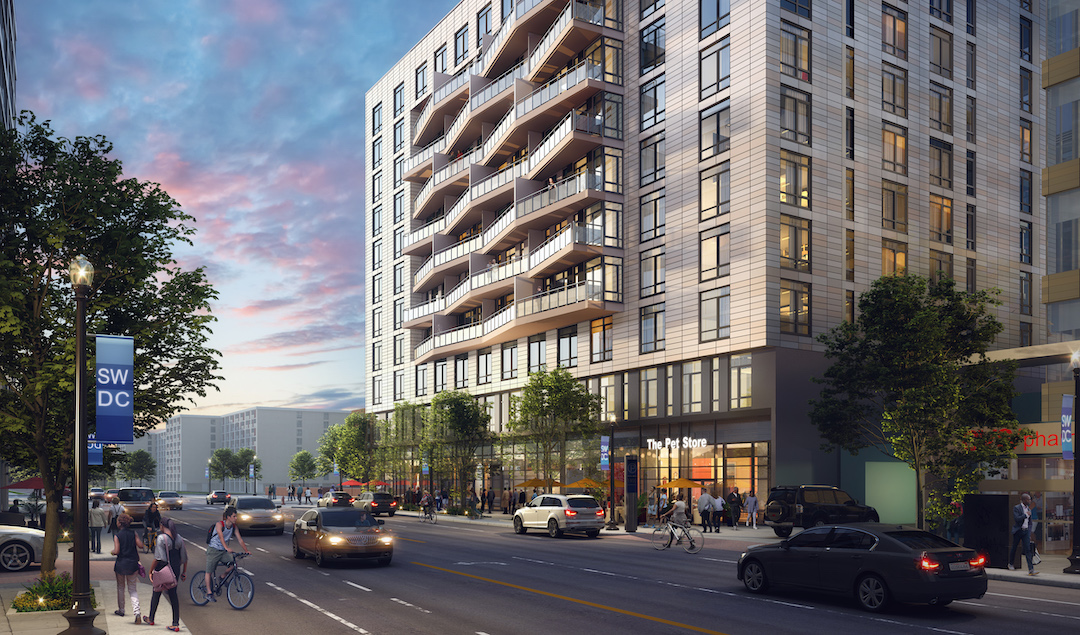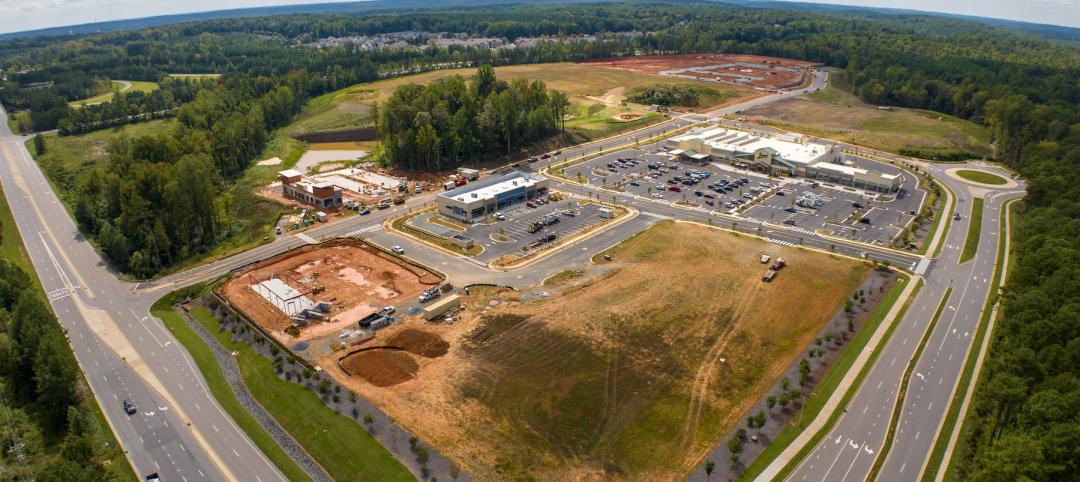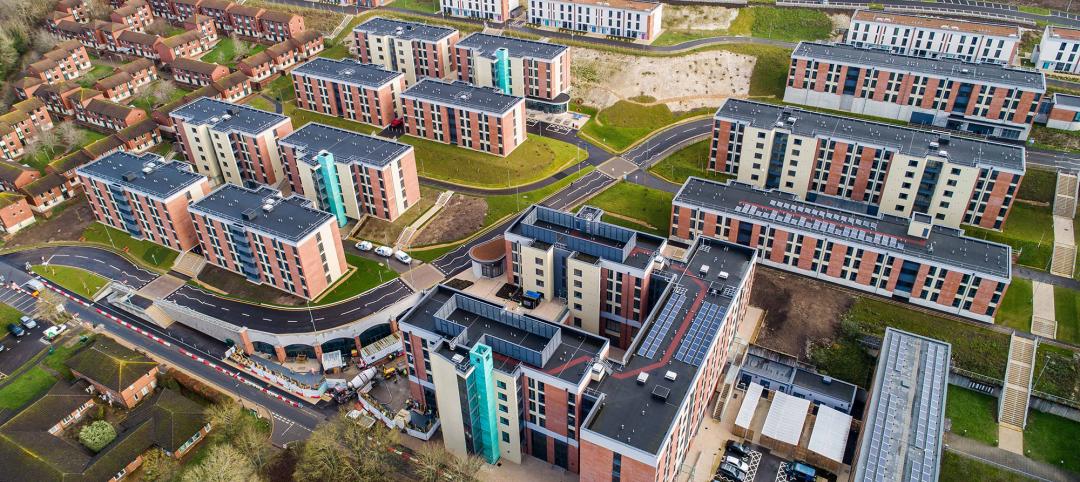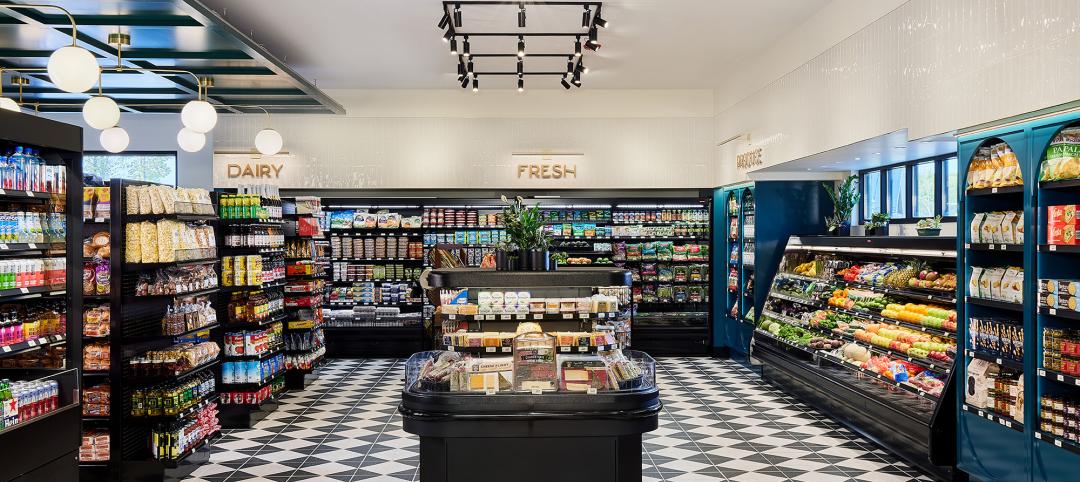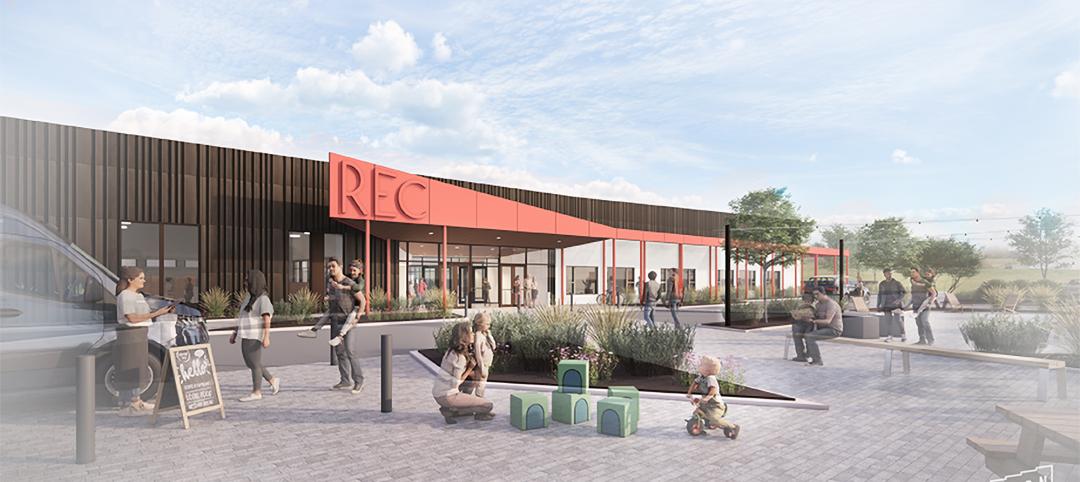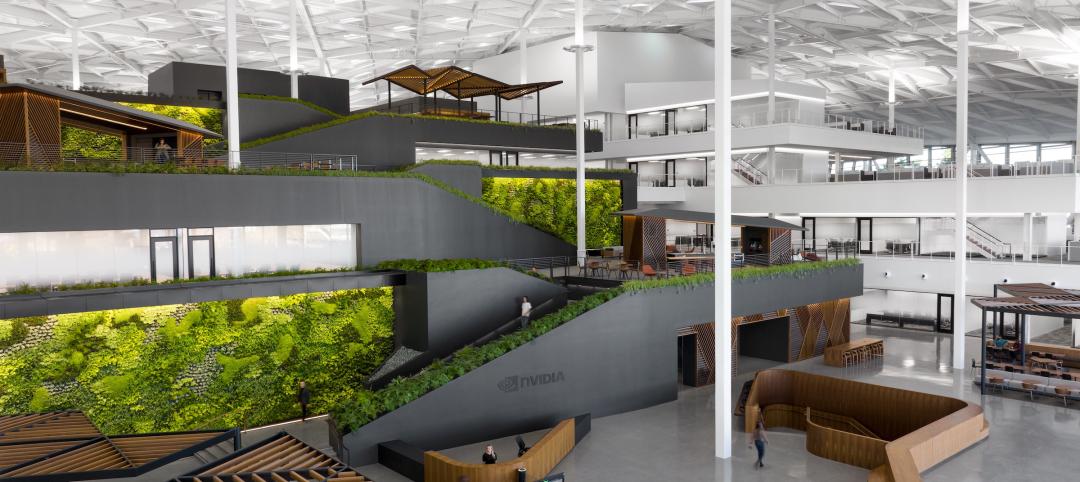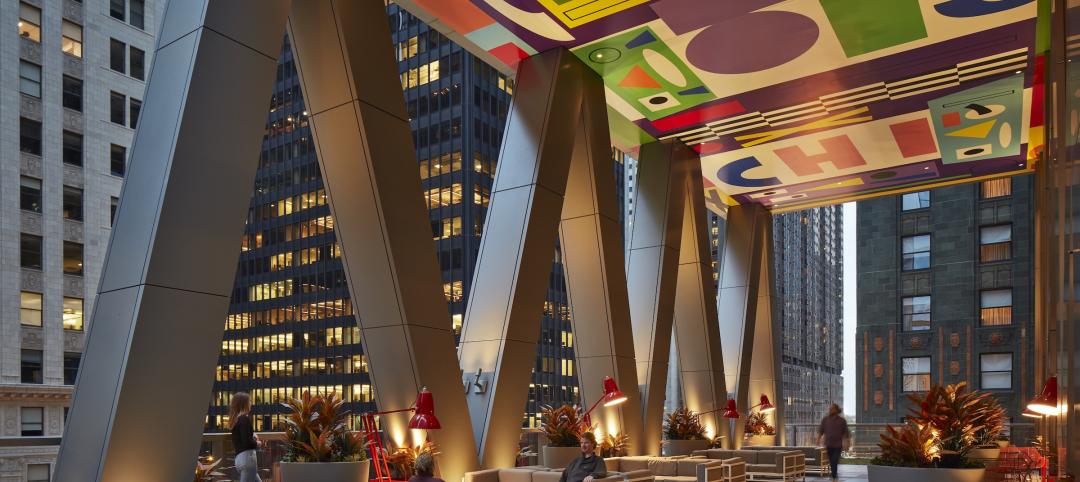Hoffman & Associates has recently announced the groundbreaking of Waterfront Station II, a mixed-use development located in the heart of Southwest D.C. The project is less than one block from the Waterfront Station green line metro stop and three blocks from The Wharf neighborhood.
Upon completion, the 12-story, 400,000-sf building will include a mix of market-rate and affordable residences and retailers including a performing arts theater space, AppleTree Public Charter School, and a neighborhood restaurant by Good Company Doughnuts. Modern design elements will include angular glass balconies that mirror the waves of the nearby waterfront and contemporary interior finishes.
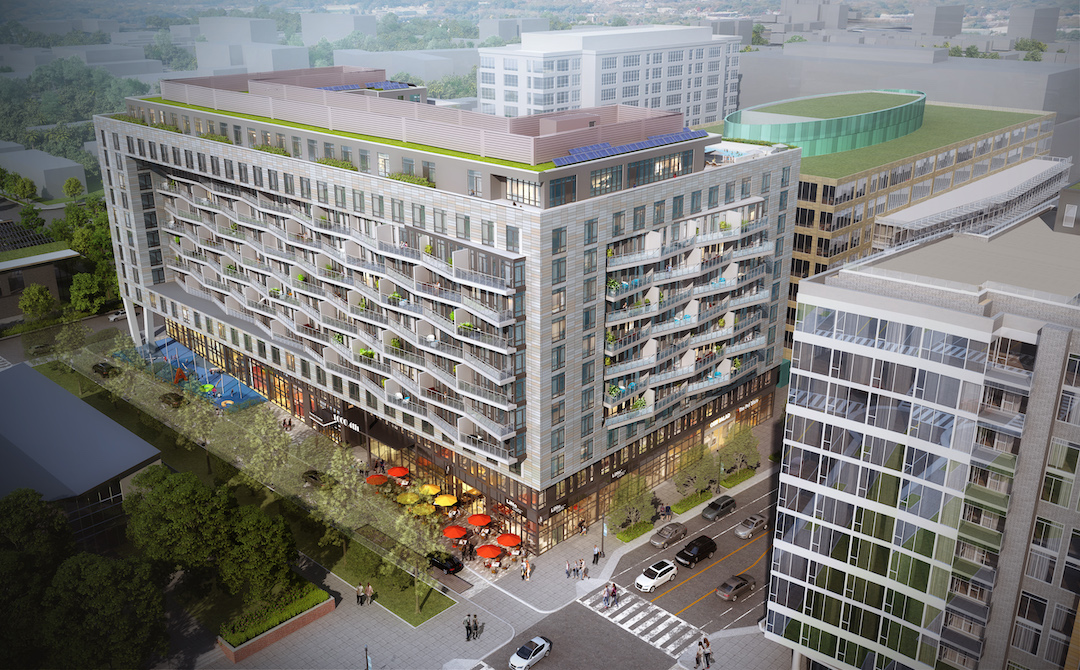
The project’s residential component includes 449 apartment units ranging from studios to two-bedrooms. Thirty percent of the units (136) will be designated affordable housing units. Of those 136 units, 68 will be available to households earning at 30% of the area median income and 68 for households earning at 50% of the area median income.

Waterfront Station II will feature more than 19,000 sf of outdoor and interior amenity space. The property will offer 13 distinct amenity areas across four floors of the building. Amenities will include a 2,200-sf coworking and communal gathering space, a 3,000-sf fitness center, entertainment and hospitality lounges, and a library. Outdoor amenities include a second-floor courtyard and a rooftop terrace and pool.
Waterfront Station II is anticipated to complete in winter 2023.
Related Stories
Mixed-Use | Oct 5, 2023
Mixed-use pieces supporting a master plan in North Carolina fall into place
Near Chatham Park, a new multifamily housing community follows the opening of a shopping center.
Contractors | Sep 25, 2023
Balfour Beatty expands its operations in Tampa Bay, Fla.
Balfour Beatty is expanding its leading construction operations into the Tampa Bay area offering specialized and expert services to deliver premier projects along Florida’s Gulf Coast.
Mixed-Use | Sep 20, 2023
Tampa Bay Rays, Hines finalize deal for a stadium-anchored multiuse district in St. Petersburg, Fla.
The Tampa Bay Rays Major League Baseball team announced that it has reached an agreement with St. Petersburg and Pinellas County on a $6.5 billion, 86-acre mixed-use development that will include a new 30,000-seat ballpark and an array of office, housing, hotel, retail, and restaurant space totaling 8 million sf.
Adaptive Reuse | Sep 19, 2023
Transforming shopping malls into 21st century neighborhoods
As we reimagine the antiquated shopping mall, Marc Asnis, AICP, Associate, Perkins&Will, details four first steps to consider.
Resort Design | Sep 18, 2023
Luxury resort provides new housing community for its employees
The Wisteria community will feature a slew of exclusive amenities, including a market, pub, and fitness center, in addition to 33 new patio homes.
Adaptive Reuse | Aug 31, 2023
Small town takes over big box
GBBN associate Claire Shafer, AIA, breaks down the firm's recreational adaptive reuse project for a small Indiana town.
Giants 400 | Aug 22, 2023
Top 115 Architecture Engineering Firms for 2023
Stantec, HDR, Page, HOK, and Arcadis North America top the rankings of the nation's largest architecture engineering (AE) firms for nonresidential building and multifamily housing work, as reported in Building Design+Construction's 2023 Giants 400 Report.
Giants 400 | Aug 22, 2023
2023 Giants 400 Report: Ranking the nation's largest architecture, engineering, and construction firms
A record 552 AEC firms submitted data for BD+C's 2023 Giants 400 Report. The final report includes 137 rankings across 25 building sectors and specialty categories.
Giants 400 | Aug 22, 2023
Top 175 Architecture Firms for 2023
Gensler, HKS, Perkins&Will, Corgan, and Perkins Eastman top the rankings of the nation's largest architecture firms for nonresidential building and multifamily housing work, as reported in Building Design+Construction's 2023 Giants 400 Report.
Adaptive Reuse | Aug 17, 2023
How to design for adaptive reuse: Don’t reinvent the wheel
Gresham Smith demonstrates the opportunities of adaptive reuse, specifically reusing empty big-box retail and malls, many of which sit unused or underutilized across the country.


